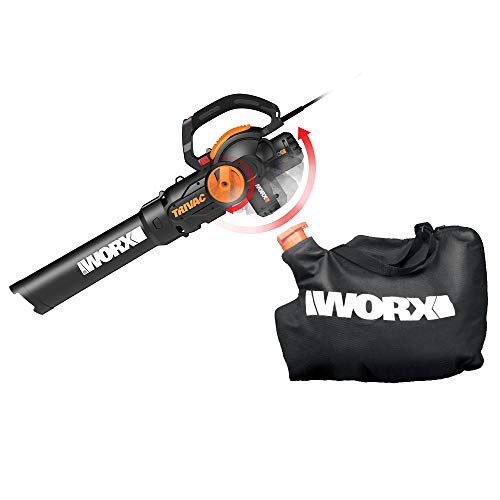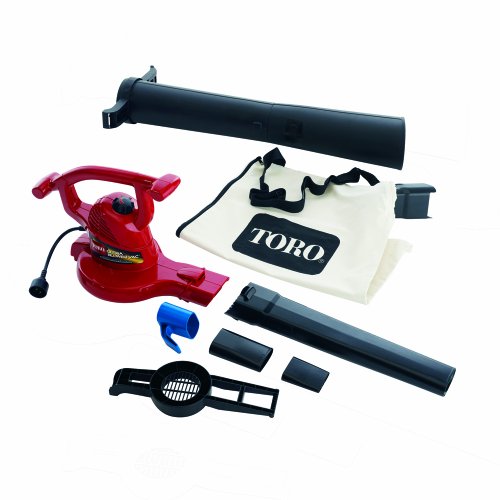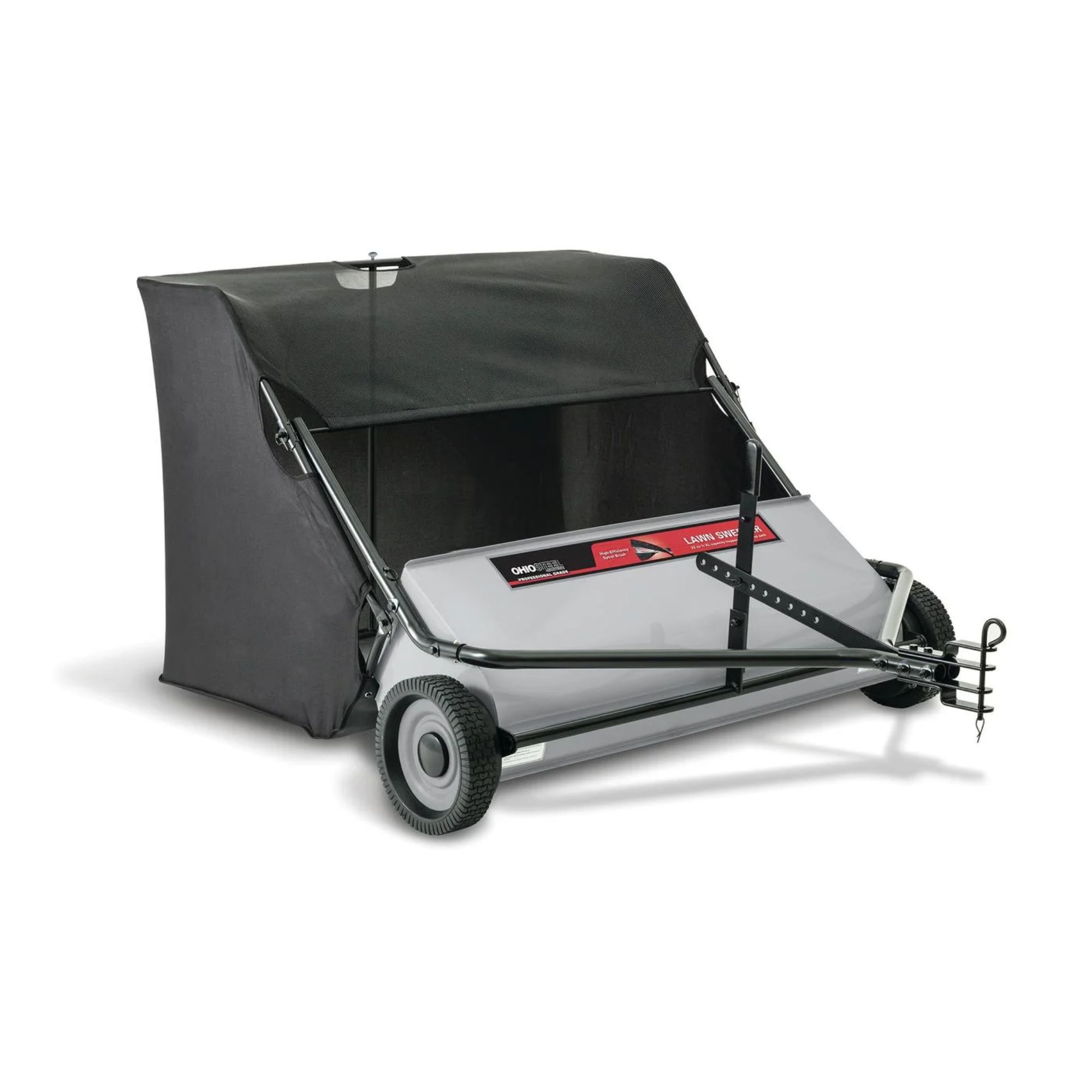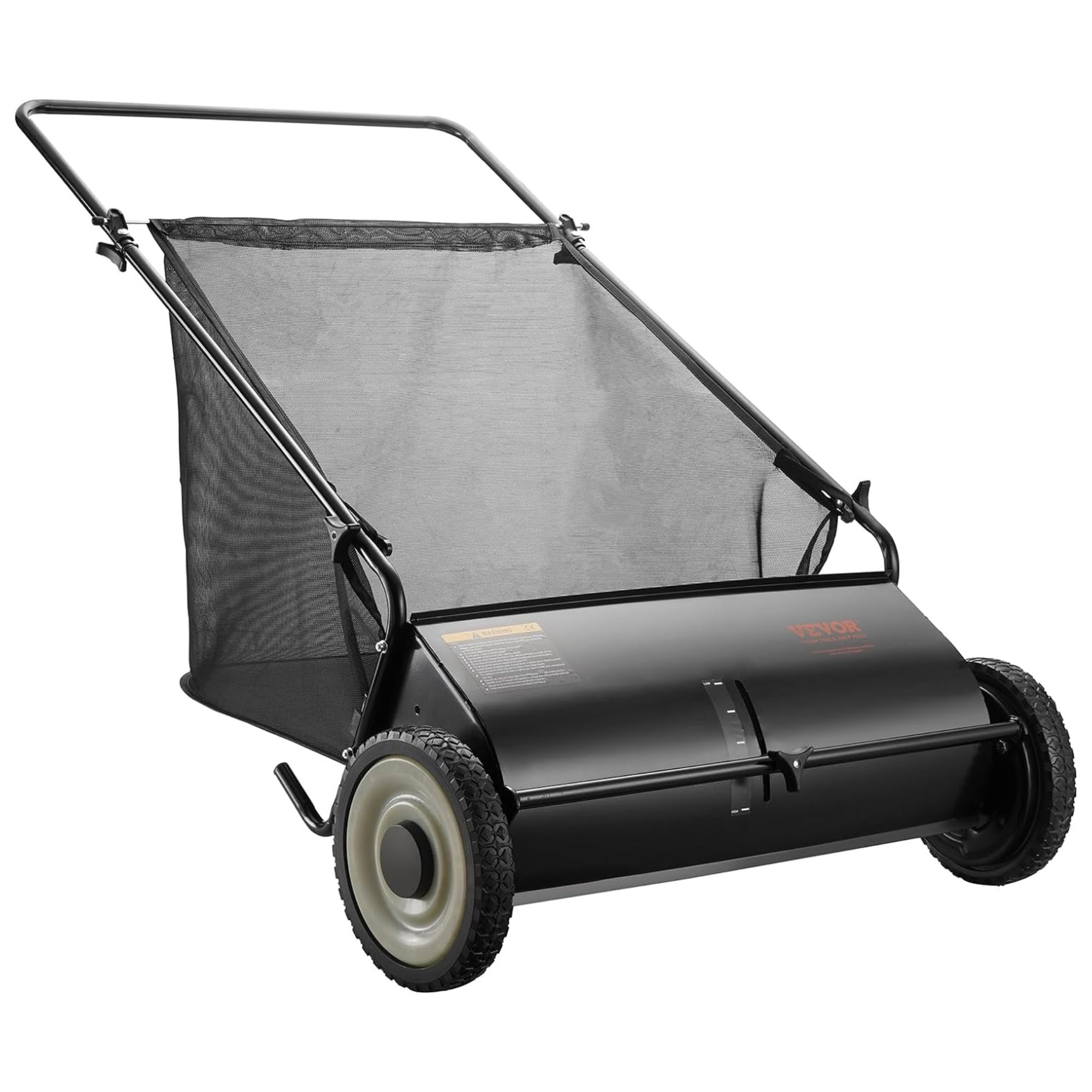Leaf vacuum vs leaf sweeper – which is best for your backyard?
The most accessible tools for tidying up leaves are leaf vacuums and leaf sweepers. Here's how to choose between them
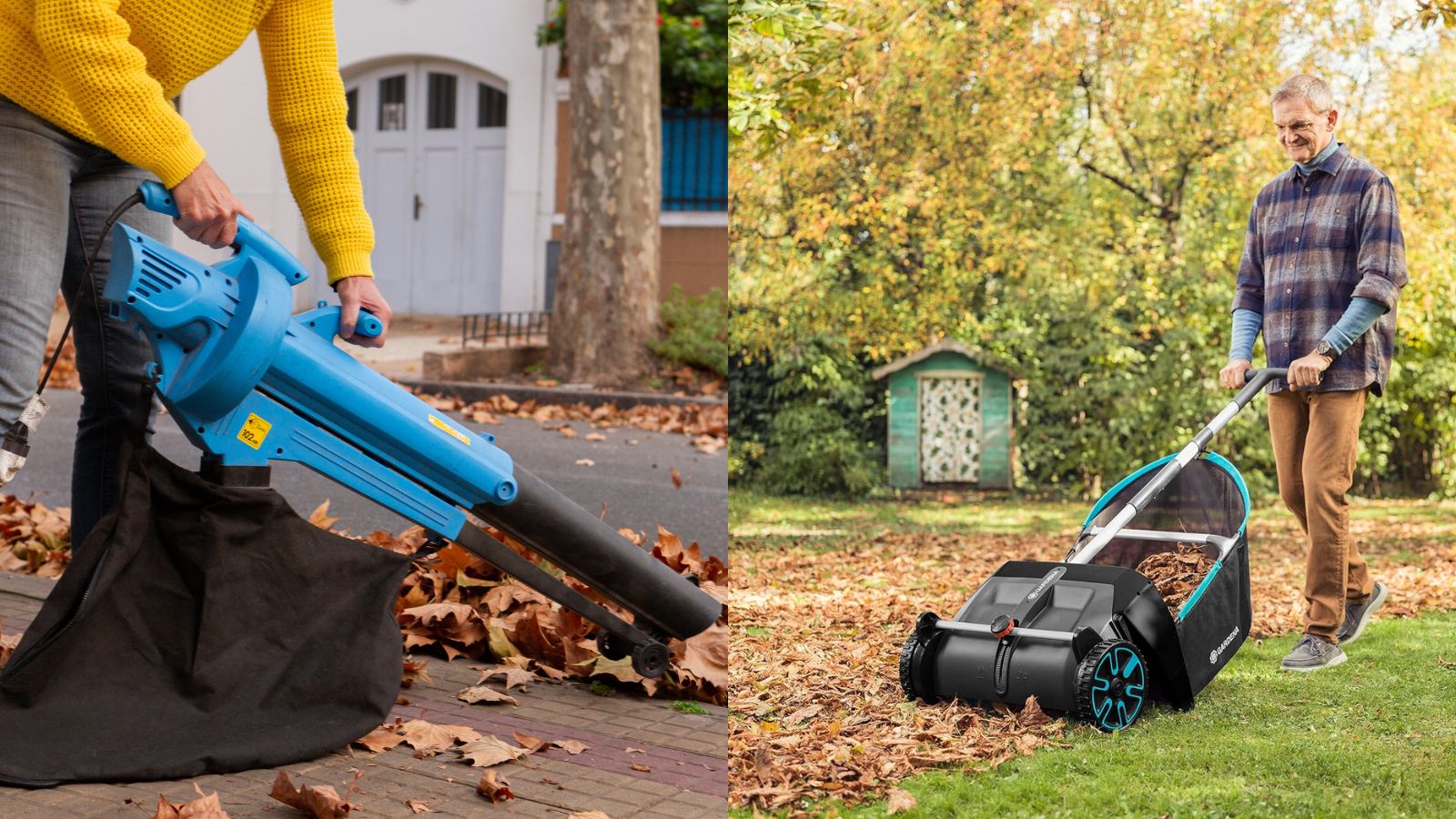

Autumn leaves are falling and that means a lot of yard work. Removing leaves from your yard is a crucial part of fall lawn care, but it can be tricky to work out which tool is best for the job.
Leaf blowers are increasingly unpopular because of their emissions and noise. You also have to bend over to pick up all the leaves once you're done, so some might turn to leaf vacuums as an alternative option.
However, these vacuums are still noisy and no good for clearing a large lawn, and as a result many of us are investing in lawn sweepers, which do the same job - quietly - and across a larger area. As a product tester, here are all the pros and cons of both tools to help you figure out which is best.
1. What's so good about a leaf vacuum?
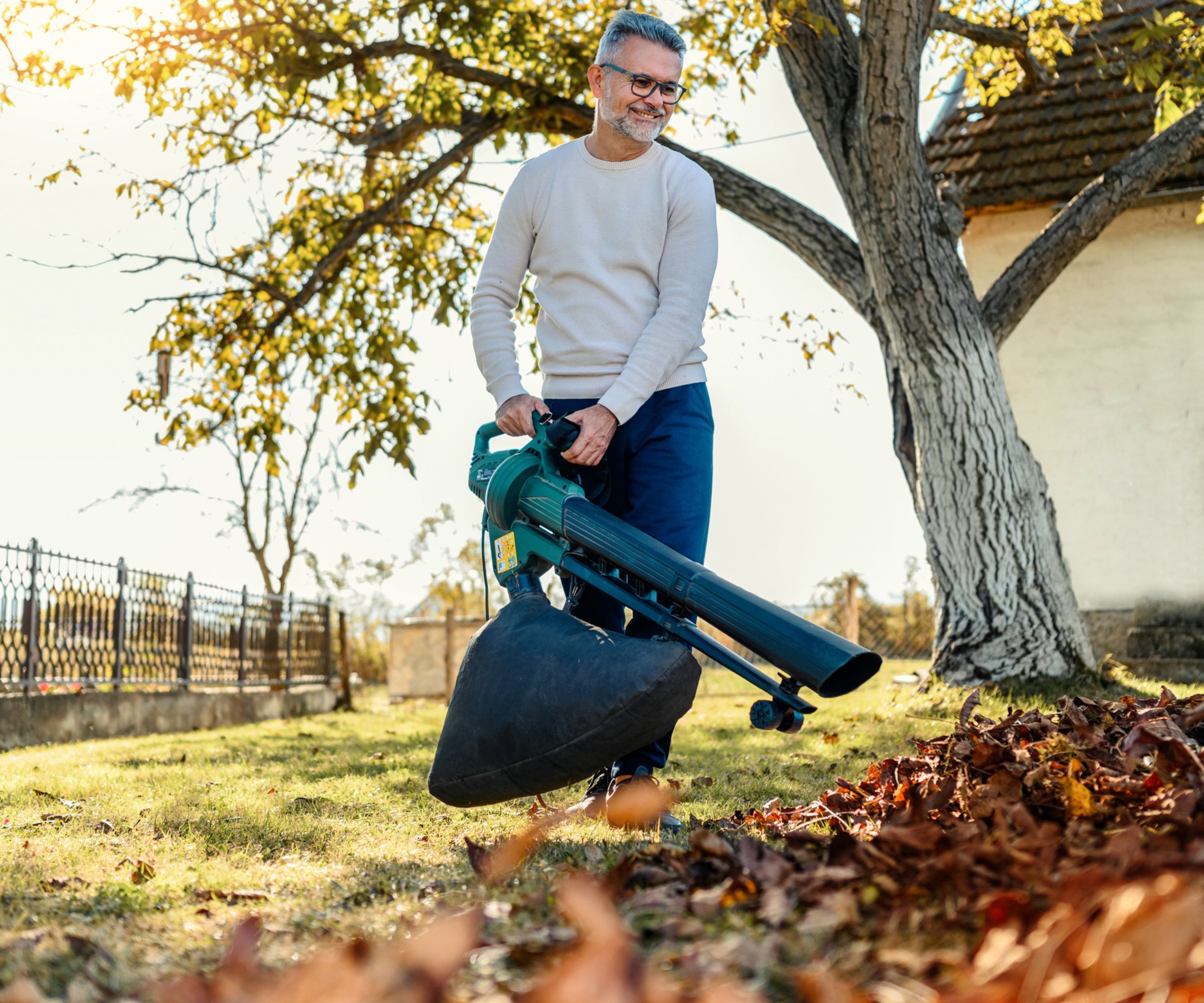
The good thing about a leaf vacuum is that it halves the amount of work you need to compared to a leaf blower, and it makes mulch, which most lawn sweepers can't do.
A leaf vacuum works like a vacuum cleaner, sucking up leaves and small twigs thanks to a powerful motor creating suction. Unlike a vacuum cleaner, however, it has a metal impeller blade. This blade works like the blade on a food processor, chopping the collected leaves into a fine mulch.
This is great for two reasons. The first is that it saves you from the backbreaking work of bending down to pick up leaves, which is the part of leaf blowing most people hate. It sucks all the leaves into a bag for you, so not only are you clearing the patio of leaves, but you're also tidying them away.
The second reason is that it gives you leaf mulch, which can be invaluable in the garden. Gardening expert Drew Swainston says 'You can use leaf mulch as brown matter in compost, or for spreading into flowerbeds to suppress weeds while giving plants crucial nutrients.' This isn't the case with a lawn sweeper. If you want leaf mulch after using a lawn sweeper, you'll have to process it yourself.
On top of that, most leaf vacuums also have leaf blower functions, so if you want to clear out gutters or blow snow off paths, you still have that option. Lawn sweepers only do one task - collect leaves - so they're not as versatile a tool.

Drew qualified as a journalist and wrote for many websites and publications, before studying for a horticulture qualification. He worked as a professional gardener for several years, specializing in kitchen gardening. He's now bringing his expertise and passion to Homes & Gardens.
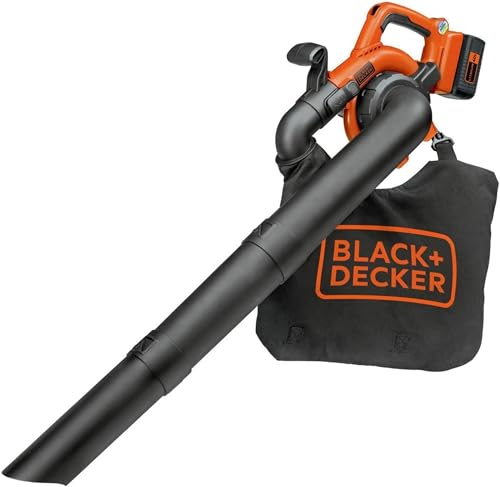
I tested this leaf vacuum a few years ago and found that it does a great job at turning leaves into mulch. However, the bag is pretty small.
2. Are there any drawbacks to leaf vacuums?
Leaf vacuums aren't always effective. They're much less effective when leaves are wet, and that's almost always the case in fall. This also makes them less effective on grass than lawn sweepers, so if you have a big lawn to clear you're much better off with a lawn sweeper.
In my tests, I've found that leaf vacuums have a very small capacity. A lawn sweeper, on the other hand, can hold much more material. For example, when I tested the Worx Trivac a few years ago I found that I was constantly emptying the bag because it only holds around 13 gallons of leaves. In contrast, the Gardena lawn sweeper, for example, can hold 3.2 cubic feet of leaves, around 23 gallons, roughly twice as much.
Leaf vacuums are also very loud, and if you live somewhere with noise restrictions or HOA regulations you might find limitations on when you can use it. A push lawn sweeper is a much better option because it's quiet. A tow-behind lawn sweeper makes as much noise as the mower towing it, but that's still often much quieter than a leaf vacuum.
3. What's good about lawn sweepers?
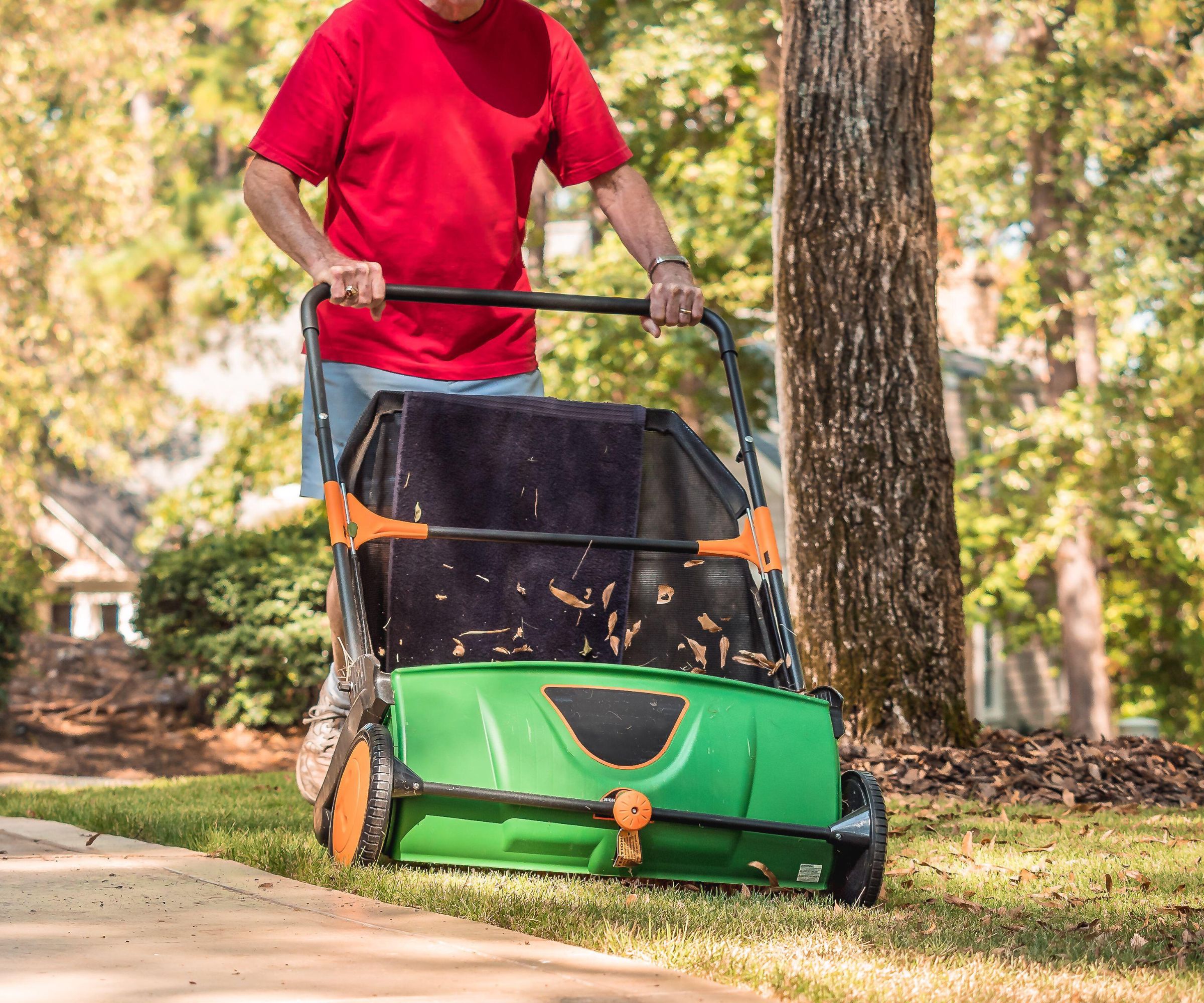
There are two types of lawn sweeper. There are manual or push lawn sweepers, which are like a reel mower. You push them over grass and they scoop up leaves into a collector.
The other type is a tow-behind lawn sweeper. This is an attachment for a riding lawn mower. You fit it to the rear of your mower and drive around the lawn; the lawn sweeper picks up the leaves.
Push lawn sweepers are powered manually. That means a little extra work, but most leaf vacuums run on utility power, so you have to deal with an annoying cable. A push lawn sweeper can go wherever you can push it. On top of that, it's great exercise. Pushing a lawn sweeper around your yard is a great way to get your steps in.
Tow-behind lawn sweepers are one of the best ways to collect leaves on a large area. A leaf vacuum is best for patios and small lawns. It will struggle to deal with any lawn more than 1/4 acre. A tow-behind lawn sweeper has a huge capacity, usually more than 15 cubic feet, offering hundreds of gallons worth of leaf collection.
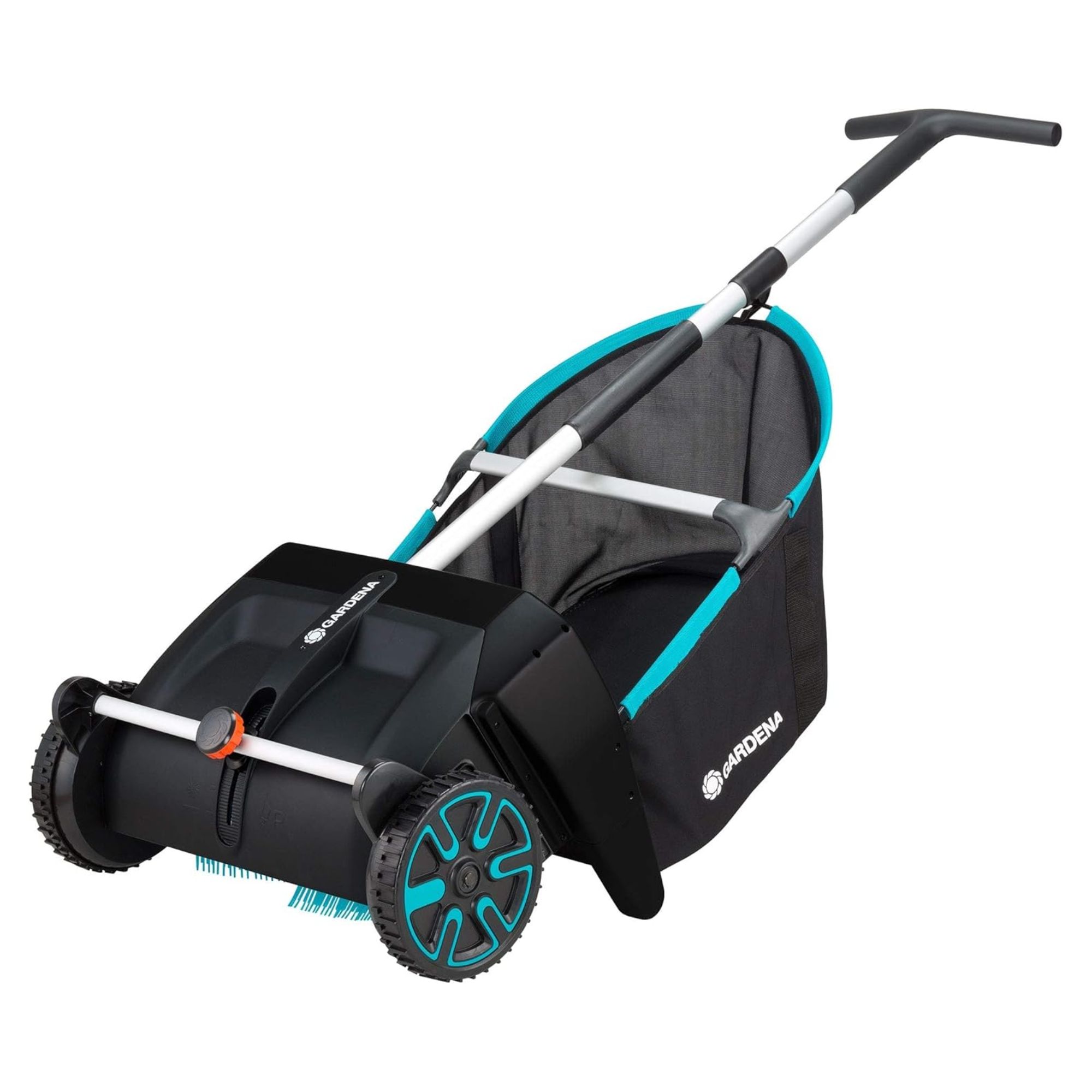
This simple leaf sweeper is all you need. It has ergonomic handles, an easy-to-remove leaf collector, and adjustable height.
4. Are there any issues with lawn sweepers?
The big drawback with leaf sweepers is that they don't process the leaves for you. They collect them, sure, but they can't turn them into leaf mulch or other useful material. You have to do that yourself.
If you have mobility issues, you might find that a push lawn sweeper is too much work, and a leaf vacuum is a better choice. If have a big lawn but don't have a riding mower, a push sweeper is your best option for picking up the leaves but it's a lot of work.
Lawn sweepers are also one-note tools. They only work for picking up debris, but you can use a leaf vacuum to clear snow from driveways and clean gutters.
FAQs
Can a lawn sweeper pick up sticks?
A lawn sweeper can pick up small twigs and sticks, as well as other common yard debris like pinecones.
Lawn sweepers are great, but they're far from your only option when it comes to leaves. It's also worth weighing up leaf blowers vs rakes and seeing if you can save a little money.
Sign up to the Homes & Gardens newsletter
Design expertise in your inbox – from inspiring decorating ideas and beautiful celebrity homes to practical gardening advice and shopping round-ups.

As a gardens and lifestyle contributor, Alex makes sure readers find the right information to help them make the best purchase. Alex got his start in reviewing at the iconic Good Housekeeping Institute, testing a wide range of household products and appliances. He then moved to BBC Gardeners’ World Magazine, assessing gardening tools, machinery, and wildlife products.
-
 Kourtney Kardashian's cloud-like chair taps into 2025's most interesting furniture trend – it has the unique ability to improve spatial flow in any room
Kourtney Kardashian's cloud-like chair taps into 2025's most interesting furniture trend – it has the unique ability to improve spatial flow in any roomAn accent chair highlights the beauty of the natural world in the socialite's living room – experts explain why it's trending and how to recreate the look
By Sophie Edwards
-
 Little Greene paint colors in real homes – 19 rooms decorated by designers with tried and true paint shades and wallpapers
Little Greene paint colors in real homes – 19 rooms decorated by designers with tried and true paint shades and wallpapersGain fresh paint color inspiration with these timeless Little Greene shades, from rich greens to elegant neutrals
By Emily Moorman
